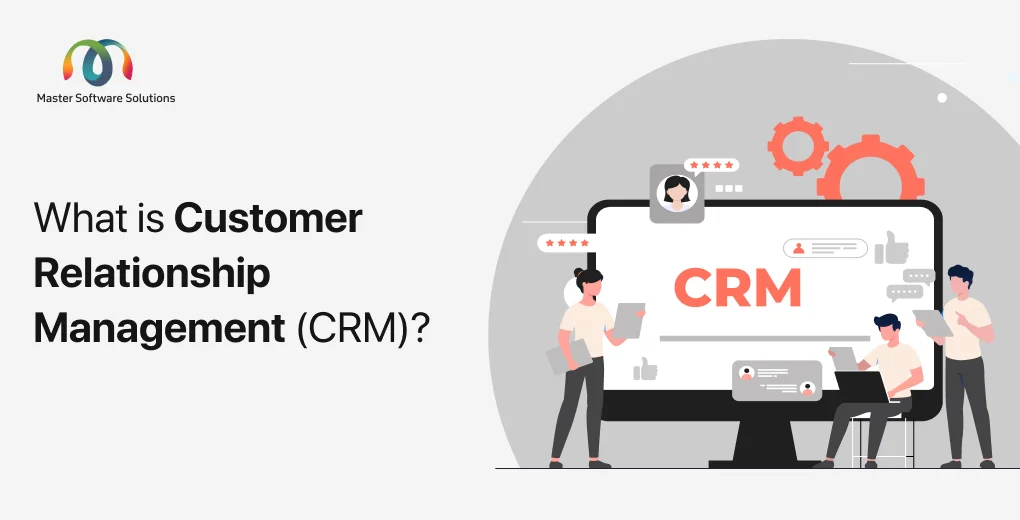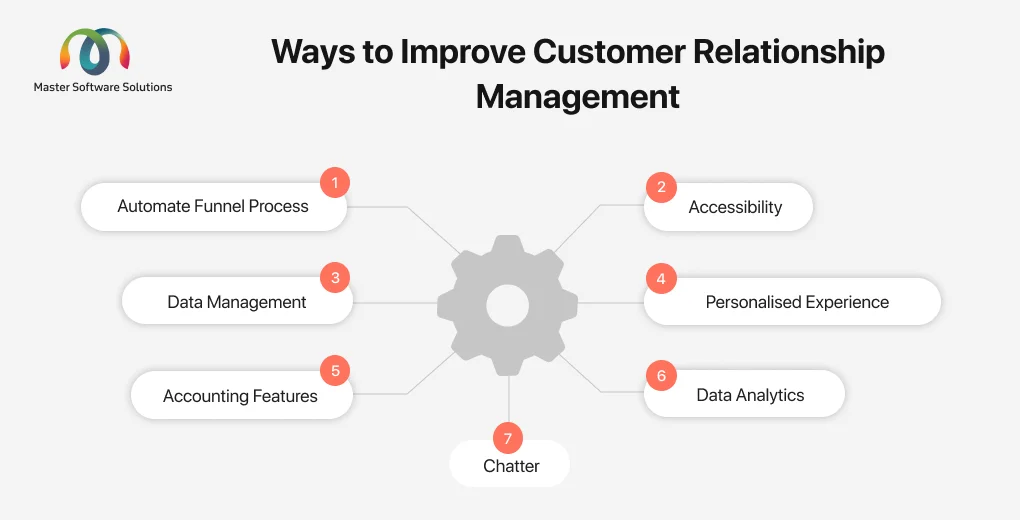What is Customer Relationship Management (CRM)?
Building and sustaining strong relationships with new and existing customers is just as important to success in today’s cutthroat business environment as finding new ones. CRM, or customer relationship management, is the main component of this approach. But first, let us define CRM precisely and see why it has become so essential to contemporary business operations.
CRM is a strategic approach that focuses on knowing, interacting with, and satisfying customers build long-term loyalty and profitability. It is more than just a software program or collection of tools. Using CRM platforms like Salesforce CRM and HubSpot CRM to their full potential may transform how you do business and improve customer relations, whether you run a large corporation, a small business, or a startup.
Customer relationship management (CRM)
CRM is a blend of strategies and technology to analyse customer interaction throughout it’s lifecycle to create and maintain customer relationships. The goal of customer relationship management is to retain customers and improve ROI.
CRM collects data from multiple channels of customer interactions with the company, which includes live chat, website, telephone, direct mail, and marketing material. Advanced CRM can also collect data on the personal information of the customer, like their purchasing history, concerns and buying preferences.
Challenges faced in customer relationship management
- Disorganised customer data – A lack of a suitable system and the dispersion of customer data across multiple platforms or formats can make it difficult to access and maintain data accuracy, which can result in inefficiencies.
- Limited visibility into customer interaction – Effective customer relationship management is hampered and the ability to create personalised experiences is limited when there is no CRM system in place to track and analyse customer interactions across various touchpoints.
- Manual and time-consuming processes – Businesses without Salesforce frequently use labour-intensive, error-prone manual data entry. Inefficient lead management, opportunity tracking, reporting, and other tasks cause slower sales cycles and lower productivity.
- Ineffective communication and collaboration – Without a centralised platform, communication among sales, marketing, and customer service teams can lead to misalignment, missed opportunities, and a lack of collaboration, ultimately affecting customer satisfaction.
- Difficulty in forecasting and reporting – Inadequate data analysis and reporting tools make it difficult to generate actionable insights. Businesses struggle to accurately forecast, identify trends, and make informed strategic decisions based on reliable data.
- Missed growth opportunities – Companies that do not have a CRM system may miss out on potential sales opportunities, resulting in inefficient lead management, nurturing, and conversions leading to low revenue.
- Inefficient customer support – Providing efficient customer support is challenging without CRM, making high levels of customer satisfaction difficult.
- Security and compliance risks – Data in different and various systems can pose security risks, making it difficult for companies to protect customer information. .
Inability to scale and adapt – Handling loads of data for a growing company is a challenge without a scalable CRM. The CRM needs to be scalable and must not lag as the data increases.
Measures to tackle Customer relationship management challenges
CRM ensures several critical aspects that contribute to effective customer management and business growth. This can be achieved by adopting technologies like Salesforce, which can help in efficient and personalised customer relationship management.
Here are the measures you can implement to achieve success in establishing customer relationships:
- Automate funnel process – Adopt a system that allows businesses to efficiently manage time. You can automate the funnel process for potential clients.
- Accessibility – The platform can be a cloud-based tool that makes it accessible anywhere and anytime. The user can work from anywhere at any time in an emergency.
- Data management – The tool must help in managing the data easily, which can cost heavily without this platform. This saves time and allows businesses to plan future sales, which improves revenue.
- Personalised experience – The system should be able to improve customer relations by directly connecting with and understanding the needs of customers and providing a personalised experience.
- Accounting feature – Account planning is a crucial aspect that encourages salespeople to develop a deeper understanding of each customer’s individual needs, motivations, and business situations. In turn, this empowers sales managers to find new ways to increase revenue from existing accounts.
- Data analytics – The system must be able to collect data from multiple channels and represent it in the form of analytics. This helps businesses make rational decisions that are based on facts and figures.
- Chatter – The chatter feature is a must. It is an internal messaging feature that allows the team to connect and collaborate. This keeps the flow of thoughts aligned in the same direction.
How does customer relationship management platform implementation help?
- Sales cloud – The main function of this Salesforce core part is to manage sales processes. Lead management, opportunity tracking, pipeline management, contact management, sales forecasting, and other functions are all included.
- Service cloud – The primary focus of Service Cloud is customer support and service. To deliver effective and individualised customer care, it has tools for case management, customer support, knowledge bases, service consoles, live chat, and service analytics.
- Marketing cloud – The tools for email marketing, social media marketing, advertising, customer journey mapping, analytics, and personalised communication to engage customers across multiple channels are all included in this component that deals with marketing automation.
- Commerce cloud – A seamless e-commerce experience can be created with the help of Commerce Cloud. It can manage product catalogues, handle transactions, build online storefronts, and provide individualised shopping experiences.
- Community cloud – For connecting and working together with clients, partners, and staff, this component makes it possible to create branded online communities. It has tools for teamwork, knowledge exchange, and discussion boards.
- Analytics cloud – This offers strong analytics capabilities by utilising AI and machine learning to examine data in technology from a variety of sources. It facilitates trend identification, outcome prediction, and data-driven decision-making.
- Einstein AI – To improve decision-making, automate processes, and customise user experiences, an AI-powered feature set, which includes machine learning, natural language processing, predictive analytics, and automation, is integrated.
- IoT cloud – The Salesforce platform’s integration and management of Internet of Things (IoT) data are made possible by this component. It assists with gathering, analysing, and responding to data from devices that are connected.
- AppExchange – Users can locate and install third-party apps, add-ons, and integrations to expand the features of the Salesforce platform through the Salesforce marketplace.
- Chatter – A Salesforce Chatter is a collaboration tool that facilitates internal communication and knowledge sharing by allowing staff members to exchange files, collaborate, and work together within the platform.
Salesforce CRM will become more and more important as technology advances and customer expectations rise. For businesses hoping to prosper in a time when customer relationships are everything, adopting CRM is not an option. CRM is really about establishing long-lasting relationships and adding value, one customer interaction at a time, whether you are just starting out or fine-tuning your current approaches.

